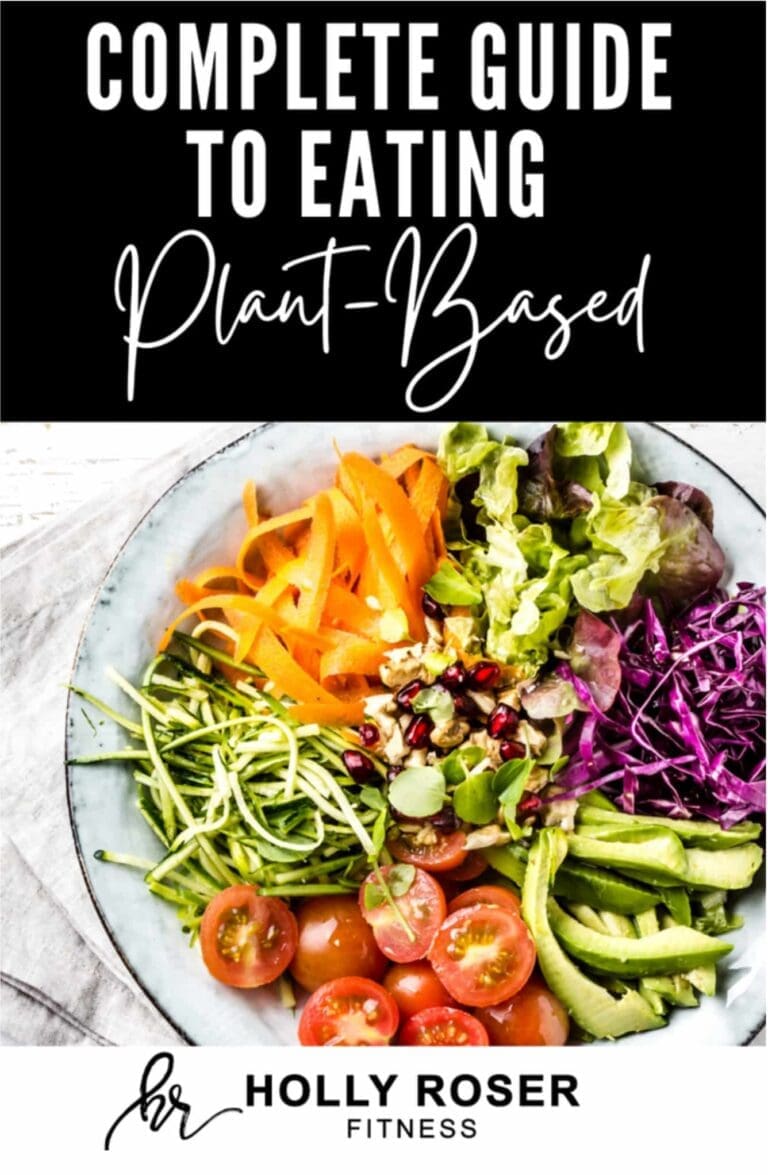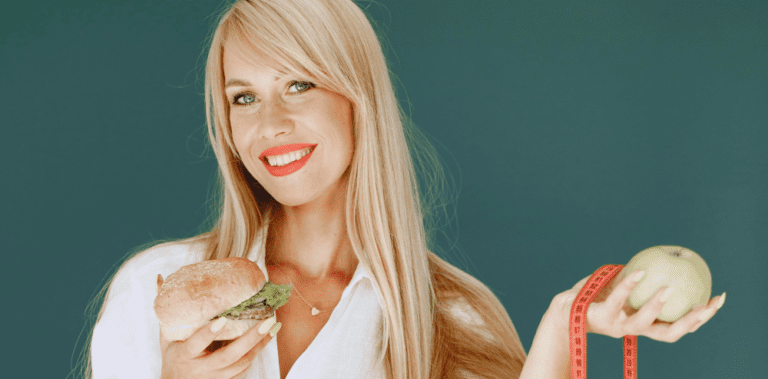
Pregnancy: it’s one of the most incredible times in a woman’s life. It’s also one of the most physically challenging. While those little kicks and flutters feel truly miraculous, the mood swings, exhaustion, nausea, and physical discomfort can be tough to cope with.
Fortunately, there are many ways to navigate the challenges of pregnancy, and to find yourself not only surviving the process, but thriving.
In this post, we’re going to discuss one of our most asked-about topics: how to stay healthy during pregnancy.
We’ll talk about everything from fitness and diet to mood, and offer some easy tips you can incorporate at virtually any stage of your pregnancy.
Let’s get started.
How to Stay Healthy During Pregnancy: 15 Easy Habits to Adopt NOW
Growing a cute little human is no easy task. Put plainly, pregnancy is hard on the body.
Blood volume in a pregnant woman’s body increases by an average of 40%-50%, the uterus grows by about 500x, and the heart literally gets bigger.
Additionally, just being pregnant can put you at risk for everything from diabetes to gingivitis. As such, self-care is critically important during pregnancy.
With that in mind, here are my top tips for staying healthy, strong, and happy as you prepare to meet your little one:
1. Find a good prenatal (and take it every day)
Doctors and midwives recommend prenatal vitamins for a reason: prenatals contain nutrients like Vitamins C, A, E, and B, as well as zinc and iodine, all of which promote healthy fetal development and support your body, mind, mood, and immune system throughout the process.
While you should always talk to your healthcare provider before deciding on a prenatal vitamin, I recommend looking for a brand that contains folic acid, calcium, vitamin D, vitamin B6, DHA, and iron. I also recommend looking for a vitamin brand that promises clean, traceable ingredients.
In addition to the nutrients offered by your prenatal vitamin, you’ll also want to make sure you’re getting enough omega-3 fatty acids. A type of fat found naturally in oily fish like salmon, omega-3 helps promote healthy brain development for your baby.
If your typical diet doesn’t include much fish, consider taking an omega-3 supplement, or adding salmon roe to your plate a few times a week.
2. Get outside

Getting outside during pregnancy serves two important purposes. First, it helps you stock up on vitamin D, which promotes calcium and phosphate absorption in your body, and healthy bone development in your baby.
Second, getting outside for a walk, a swim, or a low-impact group fitness class is a great way to maintain activity during your pregnancy and to support your mental health.
As always, be sure to wear sunscreen and dress appropriately for the weather before you venture outdoors.
3. Be careful about starting anything new
Generally, you should avoid heavy workouts during pregnancy if you are not used to them. This is not the time to take up CrossFit or become a distance runner.
That said, most medical professionals will okay patients to maintain their level of pre-pregnancy activity for as long as it feels good. That means that if you were working out before, you are generally OK to keep working out at that level during pregnancy.
The key here is listening to what your body is telling you. If you feel winded, take it easy. And, as always, consult your doctor or midwife if you have concerns about your current level of activity.
4. Find ways to keep moving

Pregnancy can make the activities you used to love uncomfortable or downright unenjoyable.
Box jumps might not feel great (or be medically recommended) at 30 weeks along, for example, and spin class may be a bit of a stretch if you’re already feeling breathless and exhausted.
It’s important to stay active during your pregnancy, though, so the key is to look for low-impact activities that allow you to move your body in a way that feels good.
Swimming, prenatal yoga, water aerobics classes, elliptical workouts, and walking (either outdoors or inside on a treadmill) are all excellent options.
At the very least, you want to shoot for 30 minutes of activity at least five times a week.
When you feel less-than-motivated, remember the benefits of exercise during pregnancy. In addition to reducing bloating and swelling, helping you sleep better, and preventing excess weight gain, ample exercise during pregnancy slashes your risk for gestational diabetes, reduces the risk of having a c-section, and can help shorten labor.
If you’re having a hard time figuring out how to stay healthy and fit during pregnancy, sign up for workouts in my online studio.
As a fitness coach that understands pregnancy, I can help you work out safely and efficiently from the comfort of your own home. Learn more here.
5. Cut back on coffee
Does the thought of giving up your daily cup of Joe send you spiraling? Don’t worry. Current medical research says it’s okay to have a little bit of coffee, as long as you’re being mindful of your daily intake.
According to March of Dimes, pregnant women should limit their caffeine to 200 milligrams each day. This is roughly the amount of caffeine contained in a single 12-ounce cup of coffee.
Remember that coffee isn’t the only possible source of caffeine.
It can also come from things like soda, chocolate, tea, soda, energy drinks, and even some medicines. With that in mind, make sure you’re reading labels before consuming new products.
6. Say no to alcohol
To safeguard your pregnancy and the health of your baby, it’s important to avoid alcohol during pregnancy.
While it may be tempting to have a sip of wine with dinner, it’s best to steer clear of all alcoholic beverages for the duration of gestation.
Here’s what the Centers For Disease Control and Prevention has to say about alcohol use during pregnancy:
There is no safe time to drink alcohol during pregnancy. Alcohol can cause problems for the developing baby throughout pregnancy, including before a woman knows she is pregnant. Drinking alcohol in the first three months of pregnancy can cause the baby to have abnormal facial features. Growth and central nervous system problems (e.g., low birthweight, behavioral problems) can occur from drinking alcohol anytime during pregnancy. The baby’s brain is developing throughout pregnancy and can be affected by exposure to alcohol at any time.
7. Be kind to yourself about weight gain
There’s no way around it:
You will gain weight during pregnancy.
And how and where you gain weight may be outside your control.
While this can be difficult to cope with, it’s important to be kind to yourself throughout the process. Your body knows what it needs to do, and it’s working hard to sustain your new baby. In that sense, gaining weight is a fantastic thing, and generally a sign of a healthy pregnancy that’s progressing normally.
Instead of obsessing about the changing number on the scale, focus on connecting with your body (meditation and breathwork are excellent options), doing things that help you feel healthy and strong (like yoga, swimming, or light hiking), and eating healthful, nutritious meals.
Focus on living your life and let your doctor or midwife worry about keeping an eye on your weight. They’ll notify you if there’s any issue with your weight gain.
8. Eat clean

Wondering what to eat to stay healthy during pregnancy? The answer is clean meals.
Eating clean is one of the top ways to nourish yourself through pregnancy.
Focus on filling your plate with whole foods that are low in refined sugar and carbohydrates, saturated fats, and sodium, and opt for meals that contain a variety of fruits, vegetables, proteins, and whole grains.
In addition to helping you feel great, healthful, clean meals will also give your growing baby the nutrients he or she needs to be strong and healthy.
To save yourself some time in the kitchen and make eating clean meals easy, check out my food subscription program Renew.
9. Get plenty of sleep
Quality sleep is critical for a healthy pregnancy.
According to recent research, women who get less than five hours of sleep per night in the first trimester of their pregnancies are nearly 10 times more likely to develop preeclampsia late in pregnancy.
In another study, researchers found that pregnant women who sleep less than six hours a night during the late stages of pregnancy had longer labors and were more likely to experience cesarean deliveries.
Poor sleep quality can also lead to a decline in mental health, and may contribute to increased anxiety and depression during pregnancy.
With that in mind, get serious about prioritizing sleep. Sleep aids like pregnancy pillows and bolsters can help you get comfortable at night, while daytime naps are a great way to make up for lost nighttime sleep.
To limit trips to the bathroom in the middle of the night, focus on drinking ample water during the day, and limiting fluid intake in the hour or two before bed.
10. Minimize stress

Between the body changes, hormone swings, planning, and shifts to your daily routine, pregnancy can be a stressful time.
Unfortunately, stress is linked to a variety of negative health outcomes during pregnancy, including high blood pressure and preterm delivery.
Take steps to minimize stress during pregnancy. Meditation and prenatal yoga are both excellent avenues to do this. Low-impact cardio like walking and swimming can also help reduce stress in pregnancy.
While prenatal yoga helps reduce stress, it also keeps joints and ligaments loose and flexible, which can make labor and delivery easier on the body.
Meditation, on the other hand, can help you calm a racing mind and may make it easier to sleep at night.
If you’re new to meditation, I recommend getting started with an app like Headspace or Calm.
11. Plan ahead
Plan for the arrival of your baby as much as you can during your pregnancy.
Start preparing the nursery early so you’re not painting walls the night before you go into labor.
Pack your hospital bag early (here’s a great list of what you’ll need), complete intake paperwork for your chosen hospital in advance (trust us – it beats trying to sign your name in the middle of a contraction), and make sure you have all the essentials, like newborn diapers and burp cloths, on hand.
While these seem like small things, they can reduce the mental clutter that comes with preparing for the birth of your baby.
12. Get the support you need

It takes a village to navigate a pregnancy. Instead of attempting to do it all on your own, actively seek out support.
Join mothers’ groups (which are also a great source of tips for first-time moms), attend a labor and delivery class, hire a housekeeper, nanny, doula, or dog walker (if it’s in your budget), and ask your spouse and friends and family for help where you need it.
If you’re struggling with mental health during pregnancy, seek out a therapist that specializes in pre- and post-natal care, or work with a nutritionist who can help you stabilize and support your hormone levels.
nn
To limit the time you spend in the kitchen, prepare freezer meals for after the baby comes. You can also sign up for a Meal Train (ask a good friend to organize it for you) or get healthy food delivery right to your door with my Renew meal program.
13. Attend your prenatal visits
Prenatal visits are critically important at every phase of pregnancy.
In addition to monitoring the growth and development of your baby, they’re a chance for your doctor to monitor your weight, blood pressure, and mental health, and for you to ask any questions about pregnancy, labor, or birth you may have.
Attend each one, and avoid skipping any of them.
14. Second-guess chemicals
Be mindful of what you allow on, in, or around your body during pregnancy.
Be wary of skin creams, lotions, and topical treatments, all of which can contain chemicals that can impact fetal development.
Even some natural supplements and essential oils are a no-go during pregnancy.
Additionally, choose safer cleaning supplies to use around your home. Look for natural, organic, non-toxic products that will limit your exposure to dangerous fumes.
Finally, take a second look at the pots and pans in your kitchen. Non-stick cookware coated with Teflon can be a sneaky source of toxins in your food. Choose better cookware (I recommend cast-iron and ceramic pieces) to keep yourself and your baby healthy.
15. Stay hydrated
During pregnancy, water aids digestion and helps sustain healthy amniotic fluid levels around your growing baby. It also helps promote the circulation and absorption of nutrients, and streamlines the removal of waste products from your bloodstream.
According to the American College of Obstetrics and Gynecology (ACOG), pregnant women should drink at least 64-96 ounces of water each day.
Ideally, you should be drinking water that has been filtered via reverse osmosis, as tap water can contain pharmaceuticals, fluoride, and other toxic elements that can impact the growth of your baby.
To make staying hydrated easier, invest in a high-quality stainless steel water bottle that you can carry with you during your daily errands.
You can also spike your water with muddled raspberries, watermelon slices, or a little lemon or lime to enhance the taste.
For an added boost, add some electrolyte tablets to your water to replenish your body’s stores of sodium, chloride, potassium and calcium.
Your Healthiest Pregnancy Starts Here
Figuring out how to take care of yourself during pregnancy can be difficult, but you’re not alone in the journey.
My goal is to help the women I work with stay healthy and feel great during pregnancy, and to support the most important outcome of all: that you have a healthy baby.
If you’re looking for ways to stay accountable and enjoy a healthy, complication-free pregnancy, my team and I can help.
We’ll create a personalized workout and diet plan, keep you accountable, and help you feel strong as you head into motherhood. Send us a message today to make it happen. We’re here for you!
Disclaimer: The information on this site is not intended or implied to be a substitute for professional medical advice, diagnosis or treatment.






